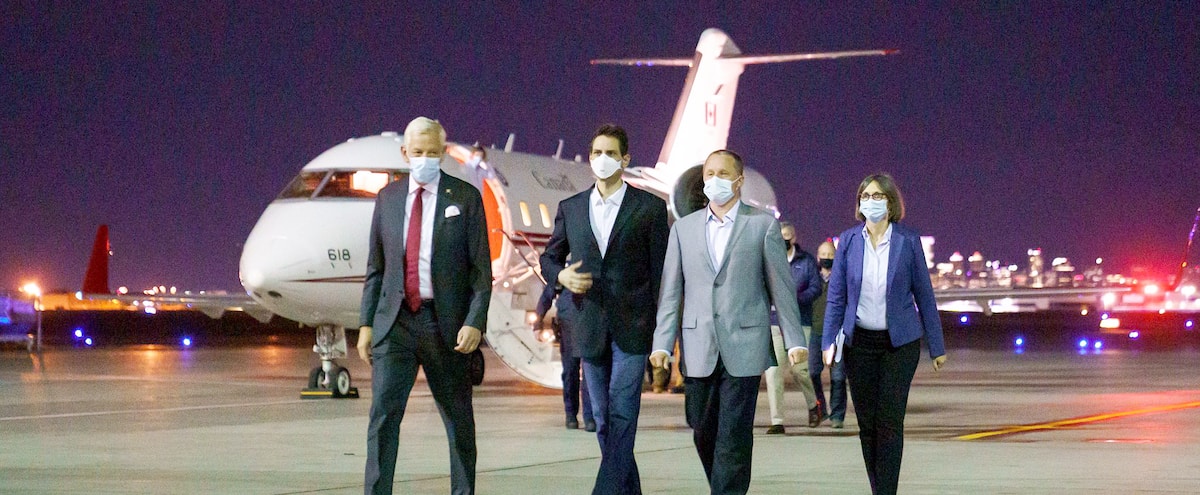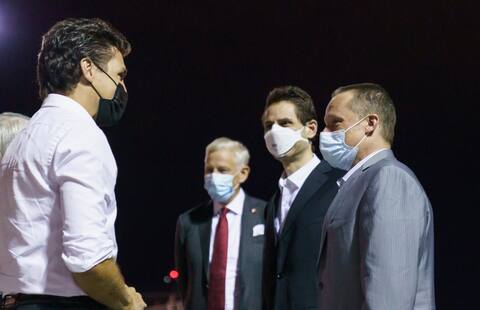Beijing, China | The simultaneous release of Huawei’s chief financial officer by Canada and two Canadians by Beijing has sparked concern in China’s foreign affairs circles, where some believe “hostage diplomacy” has worked.
• Read also – China: The Authority is trying to regain control of its youth
• Read also – China is a partner and a huge opponent
After spending three years in Canada awaiting extradition to the United States, which suspects of involvement in bank fraud, Meng Wanzhou, the daughter of the founder of the Chinese telecom giant, returned home on Saturday as a hero.
Meanwhile, Michael Spavor and Michael Kovrig, who were arrested in China a few days after Ms. Meng, returned to Canada after suffering in Chinese prisons for espionage. The Beijing media rarely reports on their arrest or release.
The Chinese system ensures there is no connection between the two cases, but the coincidence of the release shows that “hostage diplomacy has worked to some extent,” notes conifer scholar Jean-Pierre Cabestan, of Baptist University. Kong.
In this context, some foreign companies fear seeing their expatriate employees in turn as bargaining chips in diplomatic disputes.
Stephen Lynch, director of the British Chamber of Commerce in China, worries, “It seems more and more businesses are the victims of politics.”
Some bosses have made contingency plans in case their employees are detained, according to the head of a Canadian company in Shanghai.
“There is a lot of anxiety to see anyone get caught in the middle of the street overnight,” he testified.
low workforce
Expat numbers have already fallen dramatically in China due to the Covid-19 epidemic and entry restrictions put in place by Beijing.
With political pressure, some Canadian companies decided the risks were too high for them and began to scale back their operations in the world’s second largest economy.
“Every foreigner in China should know that his working hours are counted in the country,” said a Canadian businessman.
In addition to the “Michael” case, several foreigners working in China have been arrested in recent years, including a French pastry chef implicated and convicted in an old flour case. He managed to return to France at the end of 2019.
An Irish businessman has been detained since 2019 after his employer was involved in a legal dispute. An Australian journalist working for China’s CGTN TV was also arrested last year as relations between Beijing and Canberra were at an all-time low.
The premise of “hostage diplomacy” has increased with the return of two American youths to the United States, Sunday, who have been held in China since 2018, while Beijing is prosecuting their father for “economic crimes”.
Besides the business community, Western diplomats worry about having to return to China without full diplomatic immunity.
“The risk of getting caught up in a similar conflict is very high,” a diplomat told AFP.
In the context of a year of deteriorating relations between China and the West, some multinationals are feeling more and more of Beijing’s sights.
This is the case of major brands that have had to apologize in recent months after being accused of bias against China on sensitive issues such as Hong Kong and Taiwan or the treatment of the Uyghur Muslim minority in the north.
A member of the European Chamber of Commerce in Hong Kong admits that “businesses are trying more than ever to avoid politics and not cross red lines, wherever they are”.
Nor would international condemnation of “hostage diplomacy” have much impact on the communist regime. And Jean-Pierre Capestan estimates, “I think China might be tempted to turn to it again,” even if it “has contributed to the deterioration of China’s image in the world.”
See also…

“Extreme twitteraholic. Passionate travel nerd. Hardcore zombie trailblazer. Web fanatic. Evil bacon geek.”



